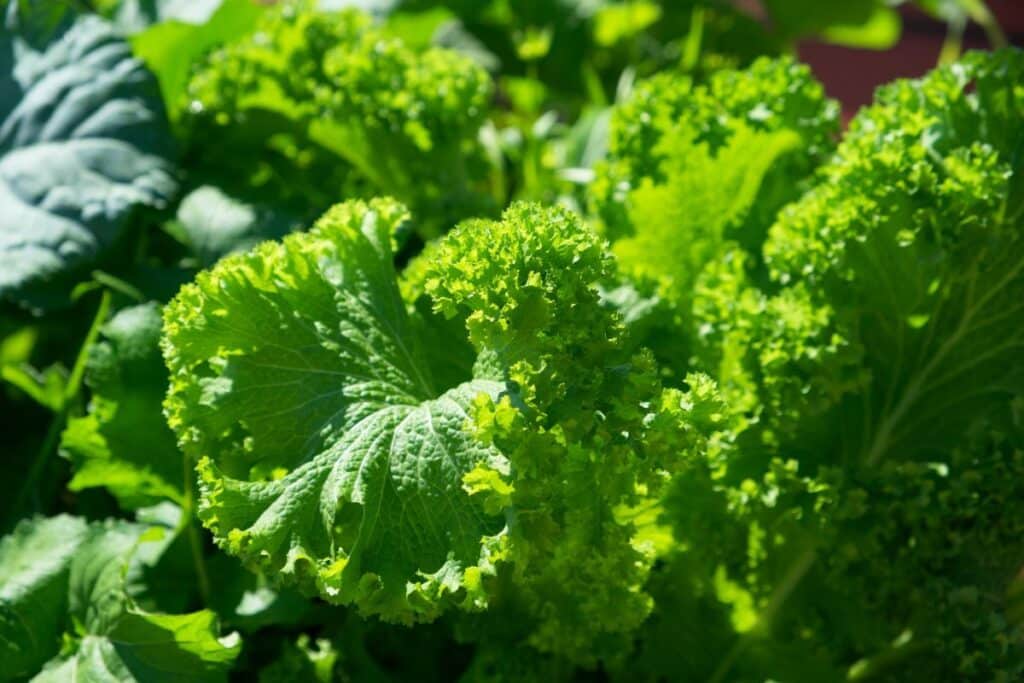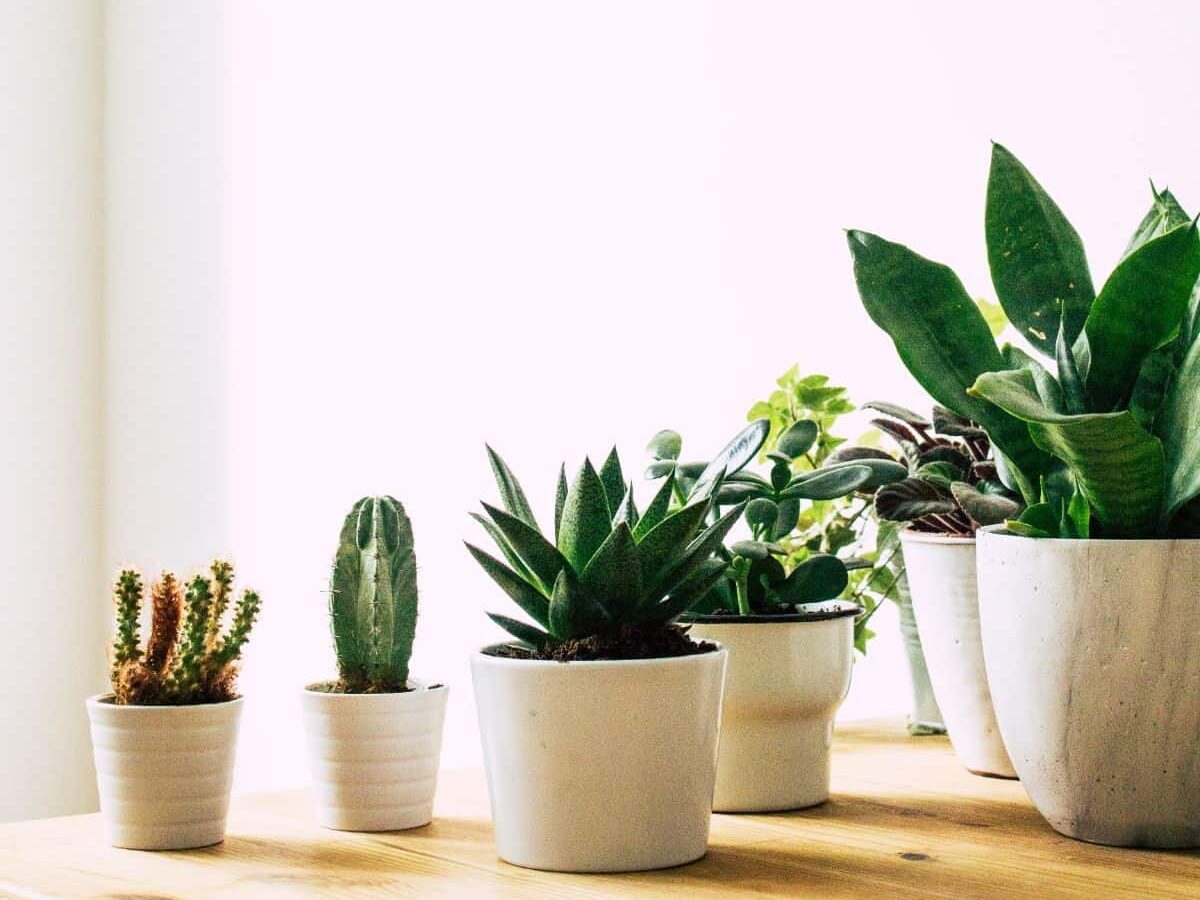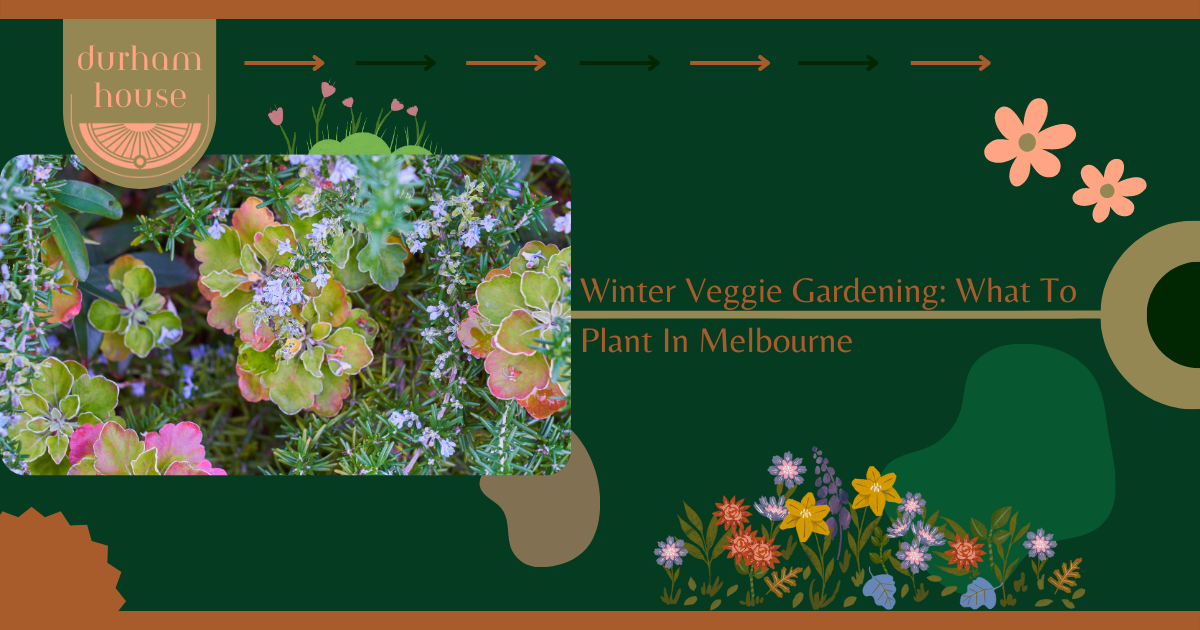Winter Veggie Gardening: What To Plant In Melbourne
Winter gardening in Melbourne presents an excellent opportunity to grow a variety of vegetables and herbs that thrive in the cooler months. With a Mediterranean climate, Melbourne’s winters are mild enough to support an array of plants that not only add flavour to your dishes but also provide essential nutrients. Here we’ll discuss what to plant during winter in Melbourne and offer some outside-the-box tips and tricks from a real green thumb for growing your successful winter vegetable garden. And who knows? You might even find your own green thumb once you thaw your hands out a bit!

Which Veggies Will Thrive?

Here are some winter veggies in Melbourne to consider planting in your garden, so you can impress your friends with your newfound gardening process:
Leafy greens
Kale, spinach, and silverbeet are all hardy winter vegetables that you can plant and can withstand chilly temperatures. These nutrient-packed greens will have you feeling like Popeye in no time!
Root vegetables
Carrots, parsnips, and beetroot grow well during Melbourne’s winter months. Just imagine the delight on your family’s faces when you serve up a colourful plate of roasted root winter veggies.
Brassicas
Did you know that broccoli, cauliflower, and Brussels sprouts are all just different variations of the same plant? They thrive in the cooler months and are packed with nutrients. Give them a chance; they might just become your new favourites!
Peas and beans
Snow peas, broad beans, and sugar snap peas are perfect for winter planting in Melbourne. These sweet and crunchy delights will have you snacking straight from the garden.
Onions and garlic: Plant onions and garlic in winter for a spring harvest. These aromatic bulbs will add a flavourful punch to your culinary creations.
Herbs Are Great Too

Don’t forget about the herbs! Winter is a great time to grow some delightful and fragrant herbs that can elevate your winter dishes. Here are some of our top picks:
Parsley
A versatile herb, parsley adds a fresh burst of flavour to winter soups, stews, and roasted vegetables.
Thyme
This hardy herb loves the cooler weather and adds a warm, earthy taste to your winter dishes.
Rosemary
With its robust flavour and aroma, rosemary is perfect for seasoning meats and root vegetables.
Oregano
Add a hint of Mediterranean flair to your winter meals with this aromatic herb.
Chives
These onion-like herbs will add a subtle, savoury touch to your winter dishes.
Tips for a Successful Winter Vegetable Garden
Now that you know what to plant, here are some tips to help your winter garden thrive!
Choose the right location

Ensure your winter garden bed receives enough sunlight during the shorter winter days. Check the instructions that came with each herb or winter veggie to figure out how much sun each variety prefers!
Improve your soil
Add compost and organic matter to your soil to help your plants grow strong and healthy.
Mulch your garden beds
Mulching helps insulate the soil, keeping plant roots warm and conserving moisture.
Protect your winter plants
Use a top bed of straw to shield delicate plants from cooler nights.
Practice crop rotation
Rotate your crops each season to maintain soil health (beans are a great first crop for this one) and prevent the build-up of pests and diseases.
Try Moving some of your crops indoors
Growing winter veggies and herbs indoors during cold winters is a great way to enjoy fresh produce year-round. Choose a sunny windowsill or use grow lights to provide adequate light. Select compact or dwarf varieties of plants, and use a well-draining potting mix in containers. To manage indoor pests, apply neem oil, a natural and non-toxic solution. This approach allows you to maintain a thriving edible garden while shielding your plants from harsh winter conditions and keeping pests out of your home!
Aquaponic Ponds – Be a Little Bit Alternative!
Aquaponic ponds are a fantastic and quirky addition to your winter vegetable garden, bringing together the best of both worlds – aquaculture (raising fish) and hydroponics (growing plants in water). This sustainable method allows you to maximise space, conserve water, and reduce the need for chemical fertilisers. Plus, you can even swap traditional fish for native species and tadpoles to benefit the environment.
Aquaponic ponds are ideal for growing many types of vegetables and herbs. Leafy greens like lettuce, spinach, and kale thrive in this environment, as do brassicas such as bok choy and broccoli. Suitable herbs for aquaponics include basil, mint (make sure this one doesn’t take over), coriander, chives, and oregano. By choosing the right plants for your aquaponic pond, you can enjoy a diverse and sustainable harvest. An aquaponic pond not only provides you with a sustainable way to grow plants and raise aquatic species, but also supports local ecosystems and reduces your environmental impact – you can even set up a solar pump to power it and enjoy being environmentally conscientious and thrifty!
Protecting Your Backyard Garden Vegetables and Herbs from Pests
Safeguard your backyard garden from pests naturally with various eco-friendly methods. Use physical barriers like tunnel nets to shield plants from insects and critters, providing an effective defence without harming the environment. Embrace companion planting, pairing plants that repel pests, such as marigolds with their scent that deters many insects, alongside your more vulnerable crops.
Attract beneficial insects, such as ladybugs and green lacewings, which prey on common garden pests, by planting flowers like calendula, yarrow, and dill. Introducing these helpful insects promotes a balanced garden ecosystem. Create homemade, non-toxic sprays using ingredients like water, dish soap, and crushed garlic to deter pests without causing harm to your plants or the environment.
Maintain garden hygiene by keeping your garden clean and free of debris, as pests often thrive in cluttered environments. Regularly remove fallen leaves, dead plants, and weeds to minimise hiding spots and breeding grounds for pests. By implementing these eco-friendly pest control methods, you can protect your backyard garden effectively while contributing to a healthier, more sustainable environment.
Winter veggie gardening can be both rewarding and delicious. With a variety of vegetables and herbs that thrive during the cooler months, you can enjoy a bountiful harvest, even when it’s bloody cold out! So, put on your gardening gloves, grab a shovel, and get planting. Your stomach will thank you.





